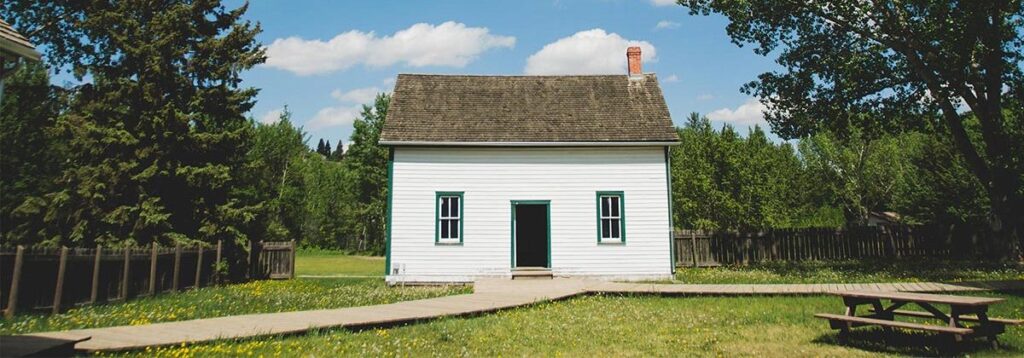Many people consider downsizing their home as they approach or enter retirement.
As with any significant life-changing decision, there are many factors to consider before you take action.
Beyond the lifestyle aspects of trading a large house for a smaller one (or for a condo/townhouse), there are potentially significant financial aspects that could make downsizing your home not worth it.
Here are four questions to ask:
What Will I Do with All My Stuff?
Less square footage usually means less storage space.
This is even more likely to apply if you’re thinking of moving from a house with a yard to a condo or townhouse without one.
When you’ve spent a lifetime accumulating things, it can be surprisingly hard to part with them.
Even for items you don’t mind getting rid of, you still have to decide what do with them.
Some things you can donate to charitable organizations like Goodwill or the Salvation Army in exchange for a tax deduction.
Others you may be able to sell.
If you have a garage and a driveway, the tried-and-true method of the garage sale/moving sale is an easy way to get rid of unwanted stuff.
You can also use modern online marketplaces like OfferUp and Facebook Marketplace, but listing items can be time-consuming and would-be buyers unreliable.
Then there’s the option of throwing it out. But this is can be emotionally difficult, especially with items that have sentimental value.
Last but not least, you can rent a storage unit to put things you can’t or won’t get rid of, but won’t fit in the new downsize home.
The downside is that the cost of renting a storage unit (and the insurance for it) offsets your downsizing savings.
Will I Have to Pay Capital Gains Tax?
If you make a profit on the sale of your home, the tax code allows you to exclude up to $250,000 for single filers and up to $500,000 in capital gains for married couples filing jointly.
You’ll have to figure out the difference between what your home’s sale price will be and what its cost basis – the purchase price you paid plus the cost of all permanent improvements you’ve made – is.
There are a few other catches.
First, you must have lived and owned the home for two (non-consecutive) out of the last five years that ends on the date of sale.
Second, you can only claim an exclusion every two years.
Will Downsizing and Moving Cost Too Much?
While a smaller home may mean paying less in utility bills and (perhaps) property taxes, you still need to factor in the costs associated with selling your home and buying a new one.
Consider realtor commissions, closing costs, and moving expenses.
These can add up quickly, and many people overlook them.
Additionally, if you’ve lived in the same home for a long time in a state like California, where property tax increases are limited, you may see a significant property tax increase even if your new property is cheaper.
Then there’s the potential expense of higher HOA dues for your new community.
How Long Will I Be Able to Stay in My New Home?
The optimal home configuration for you when you’re in your 80s may look VERY different from the place you downsize to when you’re in your 60s.
One thing to be concerned about is stairs.
When you’re younger and in good health, stairs aren’t a problem.
But as you get older, there’s a good chance your mobility and vision situation may change, requiring another move or accessibility modifications.
Elevators and parking distances can also be accessibility challenges.
Keep that in mind when deciding on a property to downsize into.
Don’t Make a Move Without a Plan
Selling your house and moving is a big decision likely to come with significant costs and challenges.
If you’re thinking of downsizing, making the move should be part of your financial plan.
Be sure to discuss your housing plans with your financial advisor in advance to be aware in advance of the potential costs and risks of selling your home and downsizing.
You may even be inspired to consider an alternative arrangement such as traveling in an RV or living on a houseboat.
Don’t have an advisor or need a second opinion? Click here to set up an appointment with one of our financial advisors and get a review of your financial plan using our Oakmont Blueprint Process.


